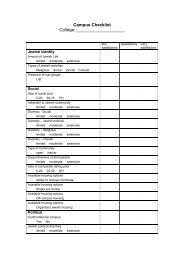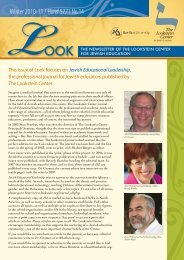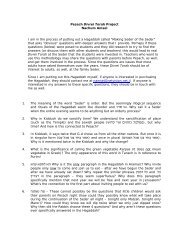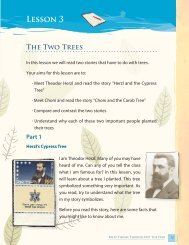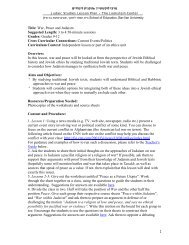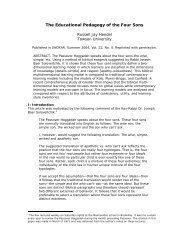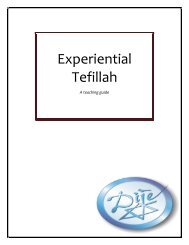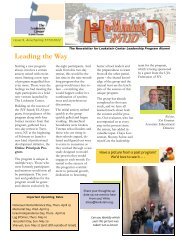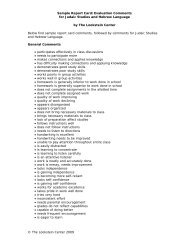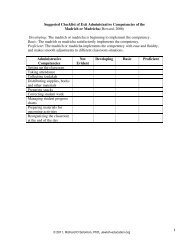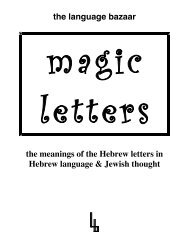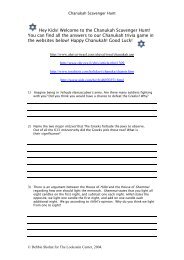FUNDAMENTAL CONCEPTS of the CLASSICAL HEBREW VERB
FUNDAMENTAL CONCEPTS of the CLASSICAL HEBREW VERB
FUNDAMENTAL CONCEPTS of the CLASSICAL HEBREW VERB
Create successful ePaper yourself
Turn your PDF publications into a flip-book with our unique Google optimized e-Paper software.
These forms are NOT ‘past’ and ‘future’ respectively as we are taught, though <strong>the</strong>y may be and <strong>of</strong>ten are<br />
used for that purpose, but <strong>the</strong>y also may mean something else. In particular, <strong>the</strong> imperfective is <strong>of</strong>ten used for<br />
<strong>the</strong> past, but it is not <strong>the</strong> same past as <strong>the</strong> perfective.<br />
Why are we making it all so unnecessarily complicated? We are not! The language itself is complicated to<br />
that extent, and to over-simplify it leads to wrong results and a misunderstanding <strong>of</strong> <strong>the</strong> text. To a religious Jew,<br />
<strong>the</strong> one most concerned about Classical Hebrew texts, this latter is a very serious matter indeed, yet ra<strong>the</strong>r than<br />
make an effort to understand <strong>the</strong> grammar <strong>the</strong> scholar <strong>of</strong>ten prefers to make his own simple rules and interpret,<br />
or ra<strong>the</strong>r misinterpret, <strong>the</strong> text accordingly.<br />
We have talked a lot about ideas in <strong>the</strong> air, generalities. How does all this work out in practice? How are <strong>the</strong><br />
various tenses formed from <strong>the</strong> aspects? This we deal with in <strong>the</strong> next chapters.



